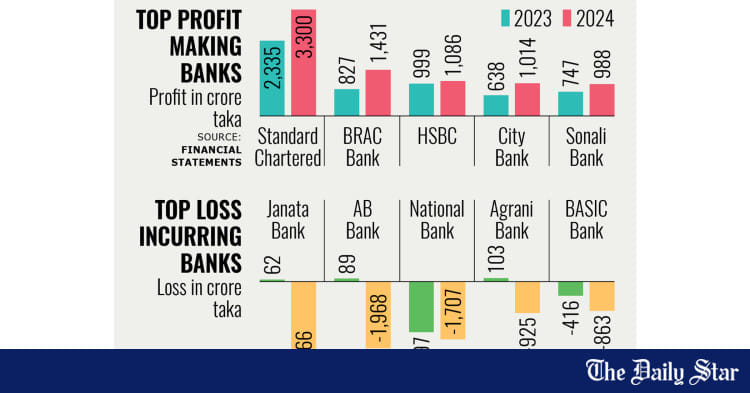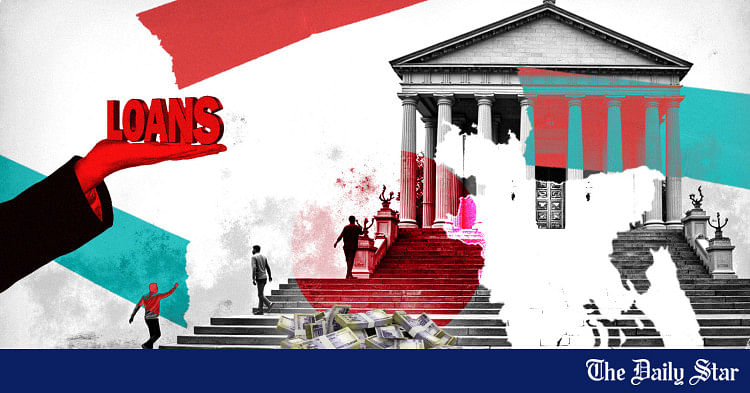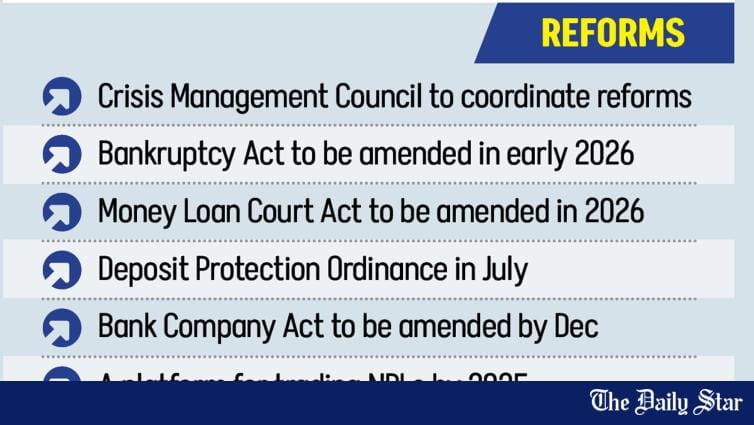- Copy to clipboard
- Thread starter
- #181
Saif
Senior Member
- Joined
- Jan 24, 2024
- Messages
- 15,397
- Reaction score
- 7,865
- Points
- 209
- Nation

- Residence

- Axis Group


Bridging banking divide for balanced growth
The issue of disparity between the rich and the poor, as well as between urban and rural areas, is a frequent topic of discussion, especially in seminars and academic forums. Today's reliance on the market system has only exacerbated this economic imbalance by disregarding the interest of the non-c
Bridging banking divide for balanced growth
Published :
Jun 16, 2025 00:17
Updated :
Jun 16, 2025 00:17

The issue of disparity between the rich and the poor, as well as between urban and rural areas, is a frequent topic of discussion, especially in seminars and academic forums. Today's reliance on the market system has only exacerbated this economic imbalance by disregarding the interest of the non-competitive people. A recent Financial Express report brings to light yet another dimension of this divide. Citing data from Bangladesh Bank, the report reveals a disturbing disparity in bank loan disbursement: while over 68 per cent of the population resides in rural areas, only 8 per cent of total bank credit is directed there. This stark imbalance not only reflects skewed development priorities but also entrenches structural inequalities by depriving rural enterprises of vital financial support.
In the absence of bank loans or due to the difficulty in accessing them, microfinance institutions (MFIs), particularly non-governmental organizations (NGOs), have become a primary source of credit in rural areas. Despite the relatively high interest rates charged by NGOs, rural borrowers often turn to them due to the unavailability of credit from traditional banks or the stringent conditions imposed by formal financial institutions. Although MFI interest rates have declined in recent years due to increased competition among microlenders in rural regions, interest rates on microcredit are still considerably higher than those offered by banking channels. These high-cost loans drive up production costs and undermine the competitiveness of rural entrepreneurs.
Meanwhile, although the prevalence of mahajans or loan sharks has decreased following the expansion of MFIs, moneylenders have not disappeared. In many areas, rural borrowers continue to turn to informal lenders to meet urgent financial needs, largely due to limited access to formal banking services. A recent research report by the Bangladesh Institute of Development Studies (BIDS) reveals that moneylenders charge an average interest rate of 145 per cent. Despite such exorbitant rates, 20-30 per cent of rural borrowers still rely on moneylenders, while around 50 per cent obtain loans from NGOs.
This limited access to formal banking channels in rural Bangladesh is not merely a matter of inadequate banking penetration - it poses a serious threat to the very notion of balanced and sustainable development. When rural clients are systematically excluded from access to capital, it stunts their economic potential and limits opportunities for upward mobility. Growth becomes increasingly urban-centric, while poverty and underemployment become deeply entrenched in the countryside. Farmers and rural entrepreneurs, who play a vital role in the national economy, are left to grapple with persistent financial challenges - often worsened by natural disasters such as floods. Strengthening credit availability at reasonable rates is, therefore, essential to easing these constraints and promoting sustainable development in rural areas.
To this end, long-term policies must be adopted that prioritise rural financial inclusion and ensure that credit reaches underserved populations effectively. Financial institutions - both banks and NGOs - need to simplify loan procedures by minimising paperwork and tailoring requirements to the realities of rural borrowers. Encouragingly, mobile financial services (MFS) and agent banking have begun to transform the financial landscape in rural Bangladesh. These innovations are bringing banking services closer to the doorstep of rural residents, eliminating the need for physical travel to distant branches. Agent banking, in particular, is gaining traction as a viable banking channel. Expanding credit facilities through agent banking and MFS platforms could significantly transform rural access to finance by providing faster, more accessible, and user-friendly services. Ultimately, bridging the rural-urban banking divide is a must for achieving equitable economic growth.
Published :
Jun 16, 2025 00:17
Updated :
Jun 16, 2025 00:17
The issue of disparity between the rich and the poor, as well as between urban and rural areas, is a frequent topic of discussion, especially in seminars and academic forums. Today's reliance on the market system has only exacerbated this economic imbalance by disregarding the interest of the non-competitive people. A recent Financial Express report brings to light yet another dimension of this divide. Citing data from Bangladesh Bank, the report reveals a disturbing disparity in bank loan disbursement: while over 68 per cent of the population resides in rural areas, only 8 per cent of total bank credit is directed there. This stark imbalance not only reflects skewed development priorities but also entrenches structural inequalities by depriving rural enterprises of vital financial support.
In the absence of bank loans or due to the difficulty in accessing them, microfinance institutions (MFIs), particularly non-governmental organizations (NGOs), have become a primary source of credit in rural areas. Despite the relatively high interest rates charged by NGOs, rural borrowers often turn to them due to the unavailability of credit from traditional banks or the stringent conditions imposed by formal financial institutions. Although MFI interest rates have declined in recent years due to increased competition among microlenders in rural regions, interest rates on microcredit are still considerably higher than those offered by banking channels. These high-cost loans drive up production costs and undermine the competitiveness of rural entrepreneurs.
Meanwhile, although the prevalence of mahajans or loan sharks has decreased following the expansion of MFIs, moneylenders have not disappeared. In many areas, rural borrowers continue to turn to informal lenders to meet urgent financial needs, largely due to limited access to formal banking services. A recent research report by the Bangladesh Institute of Development Studies (BIDS) reveals that moneylenders charge an average interest rate of 145 per cent. Despite such exorbitant rates, 20-30 per cent of rural borrowers still rely on moneylenders, while around 50 per cent obtain loans from NGOs.
This limited access to formal banking channels in rural Bangladesh is not merely a matter of inadequate banking penetration - it poses a serious threat to the very notion of balanced and sustainable development. When rural clients are systematically excluded from access to capital, it stunts their economic potential and limits opportunities for upward mobility. Growth becomes increasingly urban-centric, while poverty and underemployment become deeply entrenched in the countryside. Farmers and rural entrepreneurs, who play a vital role in the national economy, are left to grapple with persistent financial challenges - often worsened by natural disasters such as floods. Strengthening credit availability at reasonable rates is, therefore, essential to easing these constraints and promoting sustainable development in rural areas.
To this end, long-term policies must be adopted that prioritise rural financial inclusion and ensure that credit reaches underserved populations effectively. Financial institutions - both banks and NGOs - need to simplify loan procedures by minimising paperwork and tailoring requirements to the realities of rural borrowers. Encouragingly, mobile financial services (MFS) and agent banking have begun to transform the financial landscape in rural Bangladesh. These innovations are bringing banking services closer to the doorstep of rural residents, eliminating the need for physical travel to distant branches. Agent banking, in particular, is gaining traction as a viable banking channel. Expanding credit facilities through agent banking and MFS platforms could significantly transform rural access to finance by providing faster, more accessible, and user-friendly services. Ultimately, bridging the rural-urban banking divide is a must for achieving equitable economic growth.




















